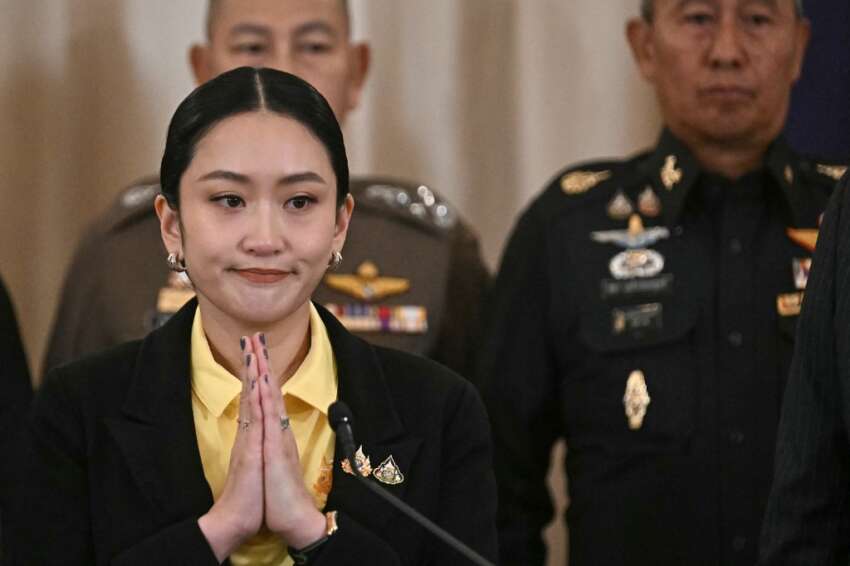
Thailand's Prime Minister Paetongtarn Shinawatra (L) gestures at a press conference next to Armed Forces Commander Pana Klaewplodthuk (R) at Government House in Bangkok on June 19, 2025. Thai Prime Minister Paetongtarn Shinawatra on June 19 apologised for her leaked phone call with Cambodia's ex-leader, which prompted a political crisis that threatens to collapse her government. (Photo by Lillian SUWANRUMPHA / AFP)
Thailand’s Constitutional Court has issued a decisive ruling on August 29th to permanently remove Prime Minister Paetongtarn Shinawatra from office. This decision comes after her temporary suspension from duties since July 1st. The removal stems from a leaked phone conversation between Paetongtarn and former Cambodian Prime Minister Hun Sen, which sparked a significant political crisis in Thailand. The court determined that her conduct during this conversation constituted a breach of ethics and brought dishonor to the nation.
The controversy arose when an audio recording of the conversation was leaked, in which Paetongtarn was found to have used inappropriate language when discussing the Thai military. This prompted 36 senators to file a formal complaint with the Constitutional Court. After thorough investigation, the court concluded that her statements were detrimental to national dignity and represented a violation of ethical standards required for her position. This breach of conduct led to her permanent removal from office under the provisions of Thailand’s constitution.
This development has triggered a political crisis in Thailand that will necessitate a complete reorganization of the government. According to Thai law, a new Prime Minister must be selected, and the entire cabinet will need to be restructured. Thai media outlets report that this change could have significant implications for the country’s political stability. The process of selecting a new Prime Minister and forming a new government will be crucial for maintaining political continuity and stability in Thailand. The Constitutional Court’s decision marks a significant moment in Thai political history and demonstrates the power of constitutional oversight in the country’s democratic system.



